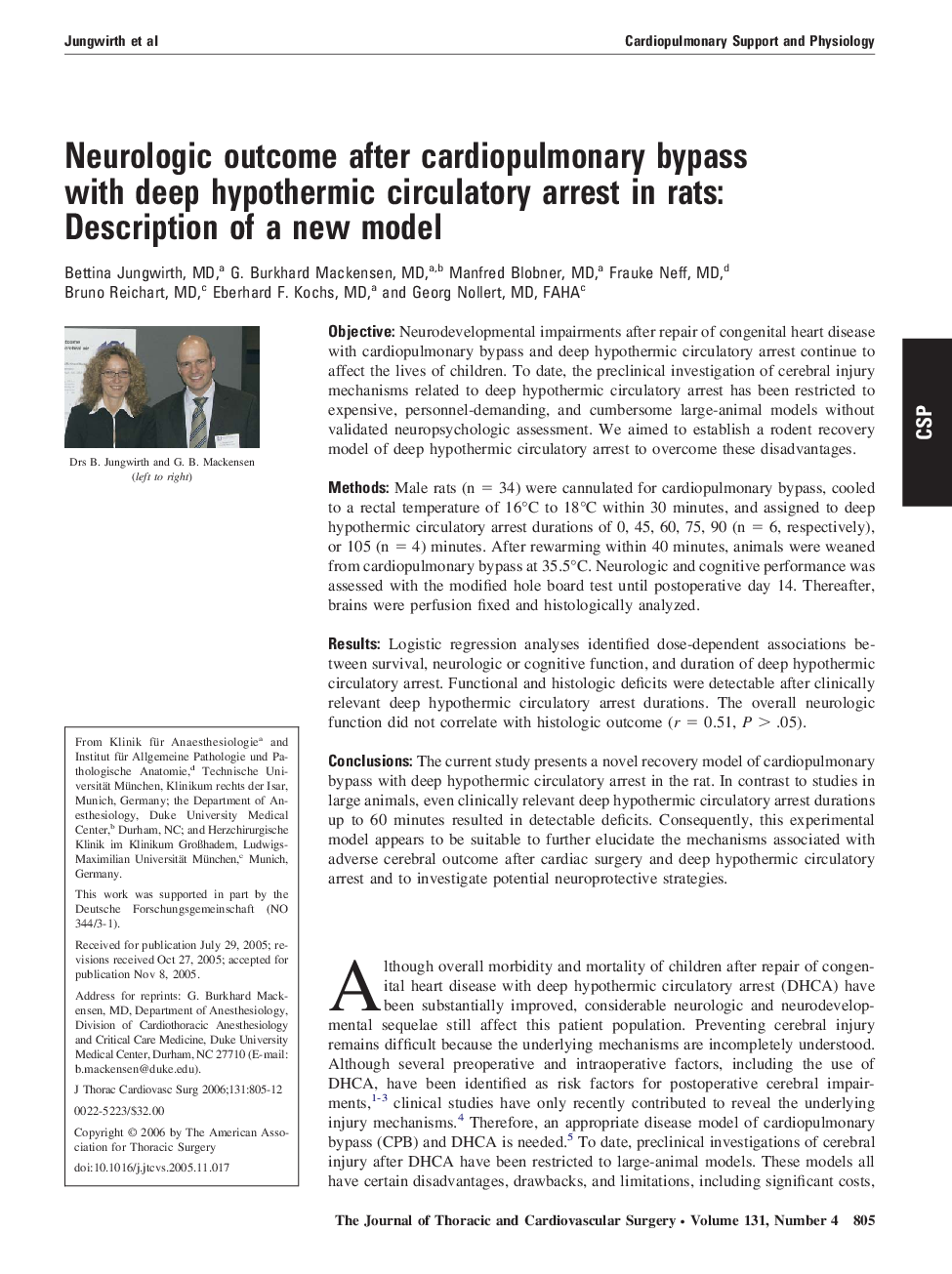| کد مقاله | کد نشریه | سال انتشار | مقاله انگلیسی | نسخه تمام متن |
|---|---|---|---|---|
| 2985178 | 1578711 | 2006 | 8 صفحه PDF | دانلود رایگان |

ObjectiveNeurodevelopmental impairments after repair of congenital heart disease with cardiopulmonary bypass and deep hypothermic circulatory arrest continue to affect the lives of children. To date, the preclinical investigation of cerebral injury mechanisms related to deep hypothermic circulatory arrest has been restricted to expensive, personnel-demanding, and cumbersome large-animal models without validated neuropsychologic assessment. We aimed to establish a rodent recovery model of deep hypothermic circulatory arrest to overcome these disadvantages.MethodsMale rats (n = 34) were cannulated for cardiopulmonary bypass, cooled to a rectal temperature of 16°C to 18°C within 30 minutes, and assigned to deep hypothermic circulatory arrest durations of 0, 45, 60, 75, 90 (n = 6, respectively), or 105 (n = 4) minutes. After rewarming within 40 minutes, animals were weaned from cardiopulmonary bypass at 35.5°C. Neurologic and cognitive performance was assessed with the modified hole board test until postoperative day 14. Thereafter, brains were perfusion fixed and histologically analyzed.ResultsLogistic regression analyses identified dose-dependent associations between survival, neurologic or cognitive function, and duration of deep hypothermic circulatory arrest. Functional and histologic deficits were detectable after clinically relevant deep hypothermic circulatory arrest durations. The overall neurologic function did not correlate with histologic outcome (r = 0.51, P > .05).ConclusionsThe current study presents a novel recovery model of cardiopulmonary bypass with deep hypothermic circulatory arrest in the rat. In contrast to studies in large animals, even clinically relevant deep hypothermic circulatory arrest durations up to 60 minutes resulted in detectable deficits. Consequently, this experimental model appears to be suitable to further elucidate the mechanisms associated with adverse cerebral outcome after cardiac surgery and deep hypothermic circulatory arrest and to investigate potential neuroprotective strategies.
Journal: The Journal of Thoracic and Cardiovascular Surgery - Volume 131, Issue 4, April 2006, Pages 805–812